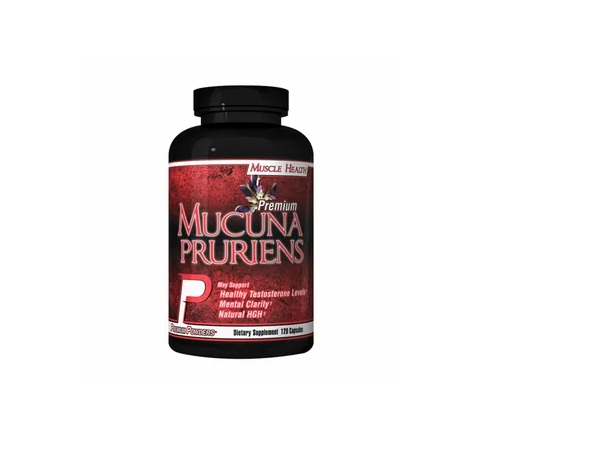Mucuna pruriens, also known as velvet bean or cowhage, is a leguminous plant native to tropical regions of Africa and Asia. It has a long history of traditional use in Ayurvedic medicine, where it is revered for its diverse therapeutic properties. Mucuna pruriens supplements have gained popularity in recent years due to their potential health benefits and ability to support overall well-being. In this comprehensive guide, we will explore the various benefits of mucuna pruriens supplements, including its effects on mood, cognition, fertility, and more.
Understanding Mucuna Pruriens
Mucuna pruriens is a climbing vine characterized by its velvety pods containing small, dark-colored beans. These beans are rich in bioactive compounds, including levodopa (L-DOPA), a precursor to the neurotransmitter dopamine. Dopamine plays a crucial role in mood regulation, cognition, movement, and reward pathways in the brain. Additionally, mucuna pruriens contains other beneficial constituents such as serotonin, alkaloids, flavonoids, and phenolic compounds, which contribute to its pharmacological effects.
Mood Enhancement and Stress Reduction
One of the most well-known benefits of mucuna pruriens supplements is their potential to enhance mood and reduce stress. Dopamine is often referred to as the “feel-good” neurotransmitter due to its role in pleasure and reward. Research suggests that supplementation with mucuna pruriens, particularly its L-DOPA content, may increase dopamine levels in the brain, leading to improved mood, motivation, and overall sense of well-being. Furthermore, mucuna pruriens may help mitigate the effects of stress by modulating the hypothalamic-pituitary-adrenal (HPA) axis, the body’s primary stress response system. By regulating cortisol levels and reducing stress-induced neurotransmitter imbalances, mucuna pruriens supplements may help individuals cope more effectively with daily stressors and improve resilience.
Cognitive Enhancement and Neuroprotection
In addition to its mood-enhancing effects, mucuna pruriens supplements may also support cognitive function and brain health. Dopamine plays a crucial role in cognitive processes such as memory, learning, attention, and executive function. By increasing dopamine availability in the brain, mucuna pruriens supplementation may enhance cognitive performance, promote mental clarity, and sharpen focus. Furthermore, mucuna pruriens exhibits potent antioxidant and neuroprotective properties, which may help safeguard brain cells from oxidative damage, inflammation, and neurodegeneration. Animal studies have demonstrated that mucuna pruriens extract may protect against neurotoxic insults and improve cognitive outcomes in models of neurodegenerative diseases such as Parkinson’s disease.
Libido and Sexual Health
Mucuna pruriens has a long-standing reputation as an aphrodisiac and fertility-enhancing herb in traditional medicine systems. Dopamine, along with other neurotransmitters such as serotonin and norepinephrine, plays a critical role in sexual arousal, desire, and pleasure. By increasing dopamine levels in the brain, mucuna pruriens supplements may help enhance libido, improve sexual function, and boost fertility in both men and women. Additionally, mucuna pruriens contains L-DOPA, which is a precursor to dopamine and may support the production of testosterone, a key hormone involved in sexual health and reproductive function. While human studies on mucuna pruriens’ effects on sexual health are limited, anecdotal reports and traditional use suggest its potential utility for enhancing libido and sexual satisfaction.
Muscle Growth and Physical Performance
Athletes and fitness enthusiasts often turn to mucuna pruriens supplements to support muscle growth, strength, and physical performance. Dopamine plays a role in regulating muscle movement, coordination, and motor control. By increasing dopamine levels, mucuna pruriens supplementation may enhance muscle recruitment, endurance, and exercise capacity. Furthermore, mucuna pruriens contains compounds such as beta-sitosterol and L-DOPA, which may promote muscle protein synthesis, reduce muscle fatigue, and accelerate recovery after strenuous exercise. While research on mucuna pruriens’ effects on athletic performance is limited, preliminary evidence suggests its potential as a natural ergogenic aid for improving physical performance and muscle function.
Dosage and Safety Considerations
Mucuna pruriens supplements are generally considered safe for most individuals when taken at recommended doses. However, it is essential to consult with a healthcare professional before starting any new supplement regimen, particularly if you have underlying medical conditions or are taking medications. Pregnant and breastfeeding women should avoid mucuna pruriens supplementation due to its potential effects on hormone levels and fetal development. Additionally, individuals with certain health conditions, such as Parkinson’s disease or psychiatric disorders, should use caution when taking mucuna pruriens supplements, as they may interact with medications or exacerbate symptoms. Common side effects associated with mucuna pruriens supplementation may include gastrointestinal upset, nausea, headache, and insomnia in sensitive individuals.
Conclusion
In conclusion, mucuna pruriens supplements offer a range of potential health benefits, including mood enhancement, stress reduction, cognitive support, libido enhancement, muscle growth, and physical performance enhancement. While scientific research on mucuna pruriens’ efficacy is ongoing, its traditional use and anecdotal evidence suggest that it may serve as a valuable natural remedy for various health concerns. As with any herbal supplement, it is essential to consult with a healthcare professional before incorporating mucuna pruriens into your wellness regimen, especially if you have underlying medical conditions or are pregnant or breastfeeding. By harnessing the therapeutic properties of mucuna pruriens, individuals can explore natural approaches to optimize their mental, emotional, and physical well-being.
- Expedition Series by Vessel: Unleashing Adventure with Style and Durability! - August 2, 2024
- Chill Out with Melo: A Taste Adventure with THC Seltzers - May 17, 2024
- Benefits of Gentian Supplements - April 1, 2024

